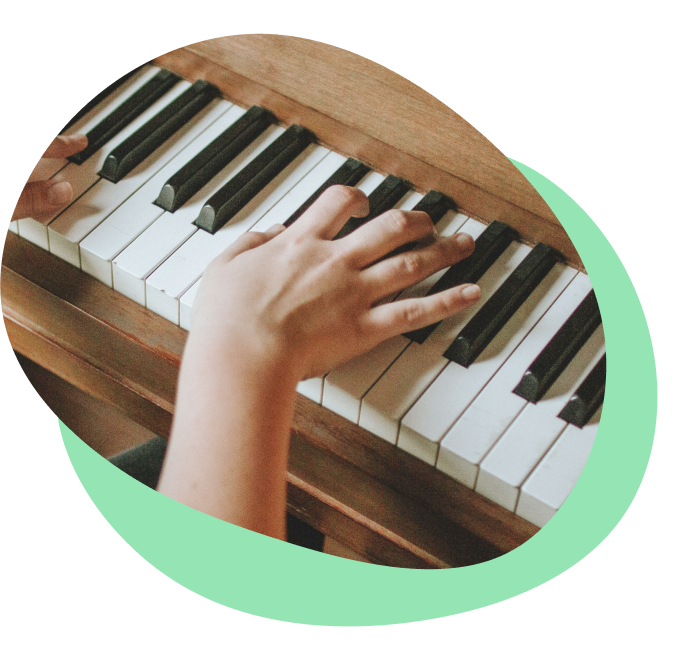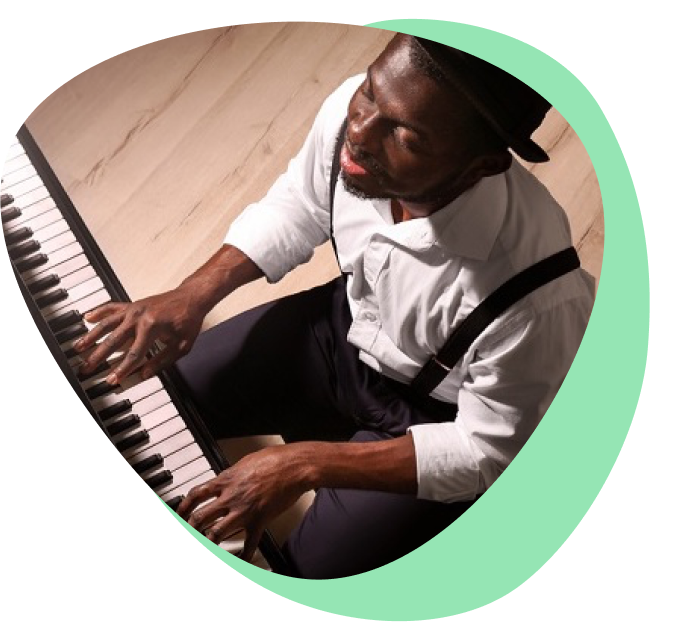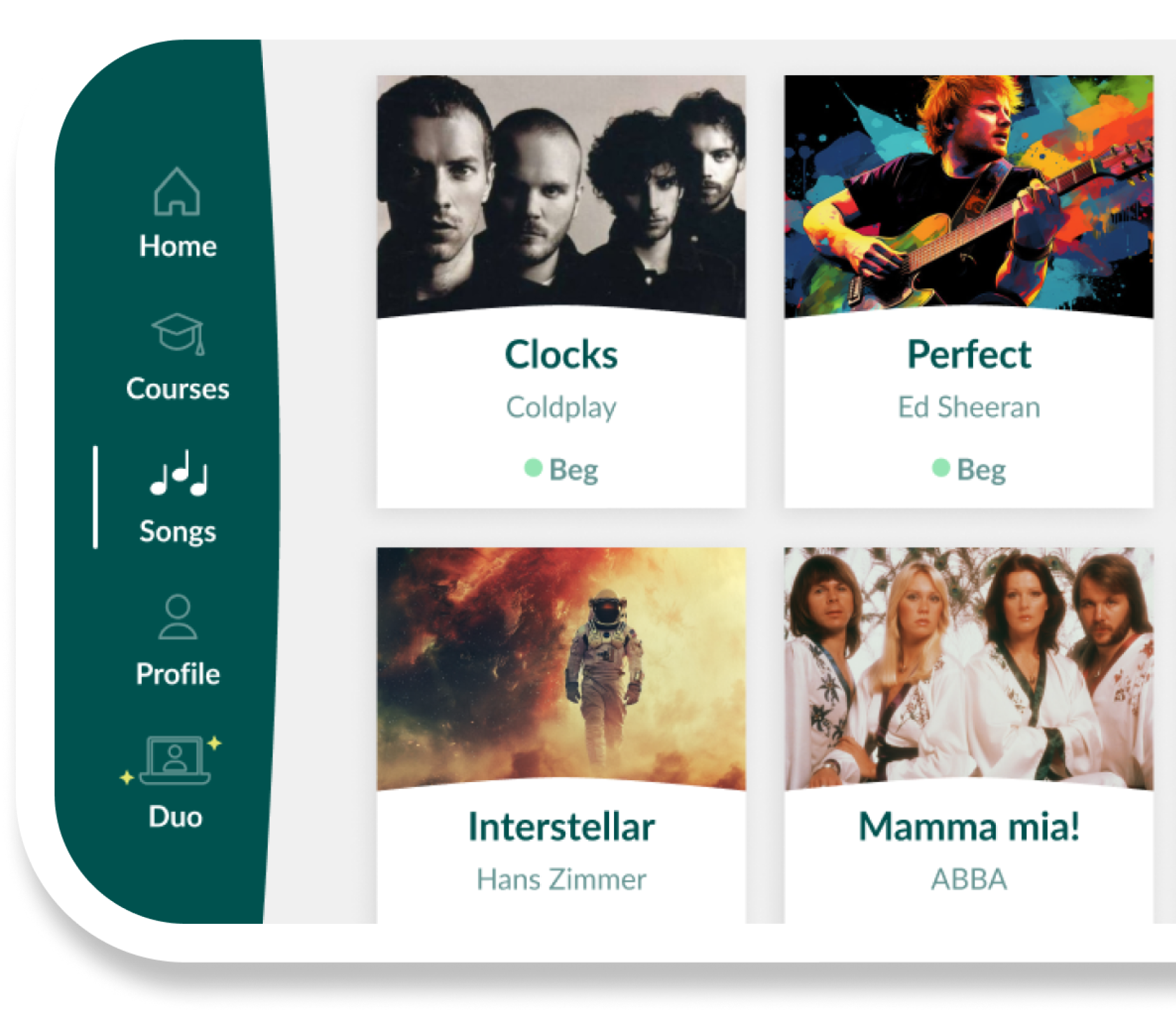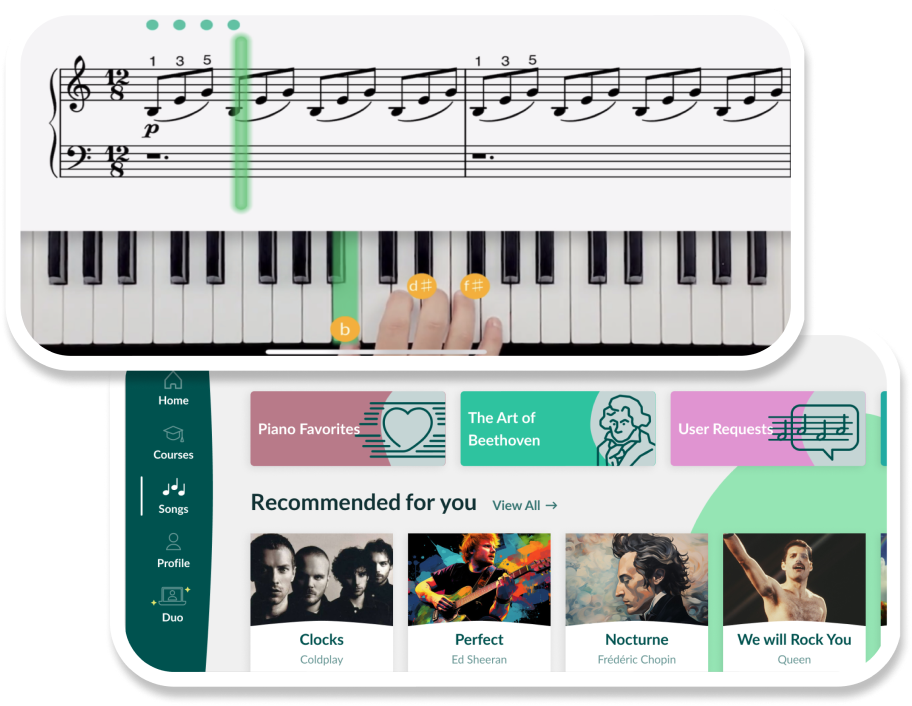Singing and playing piano is one of the most powerful things we can do as musicians. Think of the impact of musicians like Elton John, Alicia Keys, John Legend, and Freddie Mercury. Their strong piano skills combined with the emotional depths of their voices has produced some of the most enduring music of all time.
However, playing piano and singing at the same time requires a special set of skills that must be consciously practiced. But, once you get the hang of it, you will open yourself to a huge new universe of musical expression! Here are 10 tips to get your started playing piano and singing at the same time.
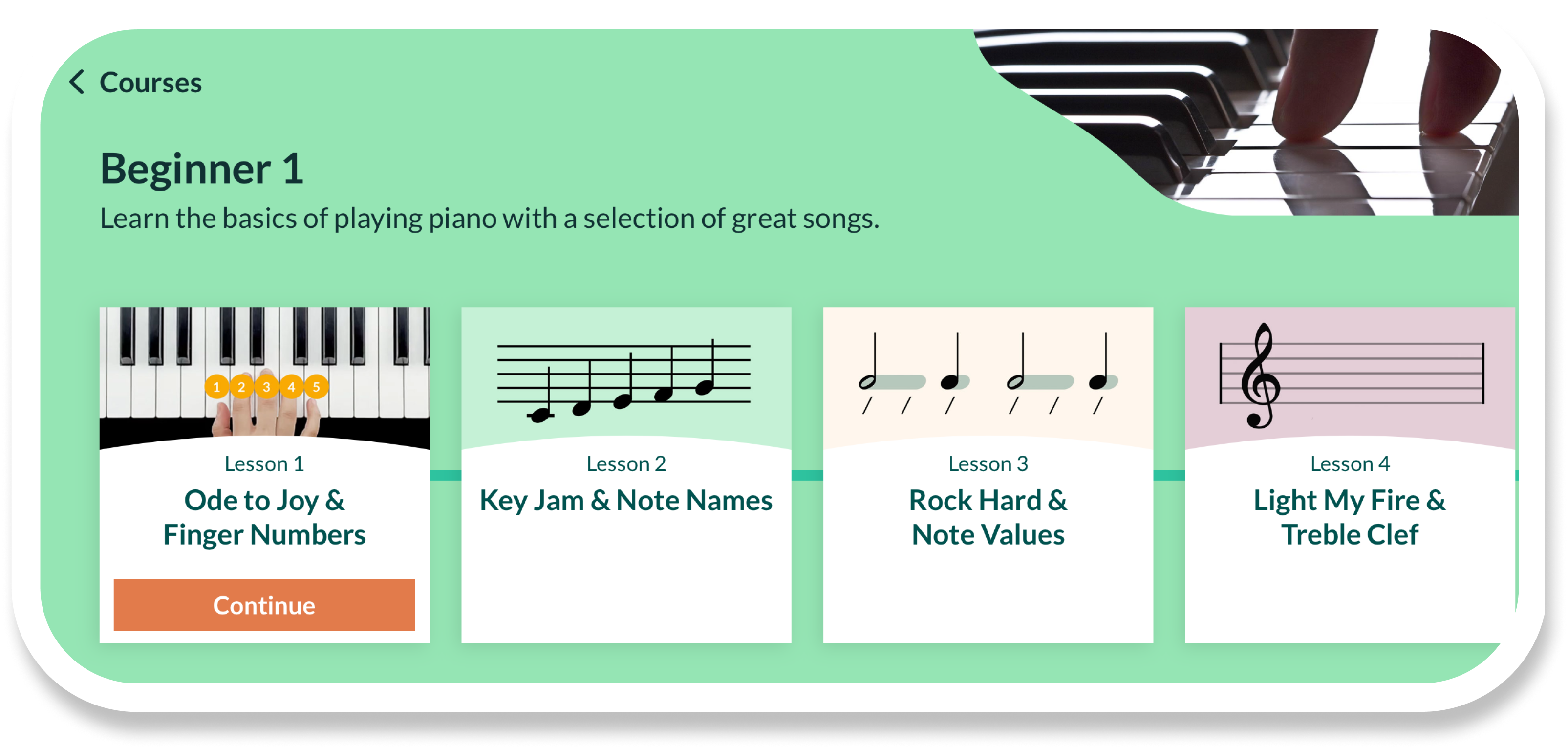
Find easy songs to play on piano and sing
The first thing to consider before starting to practice playing piano and singing at the same time is the repertoire. While you are beginning, you should find songs to sing and play piano that are appropriate for your skills. After all, we all are not going to sing and play piano like Joni Mitchell or Carol King straight away.
There are many examples of simpler songs to sing and play piano to start with in Skoove’s lessons. For example, “We are the Champions” from Queen, “Love Will Tear Us Apart” from Joy Division, or Leonard Cohen’s iconic “Hallelujah” could all be easy songs to play on piano and sing.
Warm-up!
Your voice is an instrument and you will have much more success as a vocalist if you spend the time warming up your vocal chords before you practice. Even just 5 minutes of vocal warm-ups will go a long way to building fundamental techniques and strength in your voice that you will need in order to sing more challenging songs.
There are many vocal exercises you can do. Humming, lip trills, buzzing, sirens, and scales or arpeggios are all great to practice as warm-up exercises.
Proper posture
Similarly, it is super important to maintain solid posture when you start to sing and play the piano. If you slouch while singing, as is common for pianists to do, your air-stream will be blocked. Consequently, your vocal strength will be lacking, your pitch will not be as strong, and you will feel out of breath rather quickly. So sit up straight when you sing!

Develop good mic technique
Singing on a microphone is a technique all to itself. Learning to practice proper microphone technique is a fundamental part of singing and playing piano.
Make sure that your microphone is positioned with the diaphragm perpendicular to your mouth about two fingers width away from your lips. Pay attention to your proximity to the microphone while you are singing so that you do not tilt your head too much to one side or up and down as this will affect the tone, sound, and volume of your voice coming out of the speakers. Pay attention to this as you learn how to play and sing at the same time.
Don’t skip your ear training
Ear training is a vital component to learning how to play and sing at the same time. Ear training helps us with the skill of audiation – hearing melodies inside your head. To become a comfortable and confident singer, you need to hear the melodies you are singing inside your head. Otherwise, how can you expect to sing them with good pitch?
Sit down at the piano and close your eyes. Sing through the melody you wish to play inside your head. Practice this until you can do it well. Once you can do this, make some noise!
Practice separately, then together
Just as we practice piano notes with hands separately before we combine them, it is useful to practice your piano and vocal parts separately before joining them to play and sing at the same time. You want your music to feel effortless and flowing, not constricted and jittery. One way to do this effectively is to practice the music in separate pieces.
In particular, you do not want to have to think too much about your piano chords once you start singing. You should have the piano parts under your fingers quite well so that you do not need to look down excessively as this will affect your mic technique, posture, and air-flow when you are learning how to play piano.
Use your body!
Your body is your friend when you sing and play piano. Make sure you practice how to use your diaphragm to build strong air support. Using your diaphragm to support your breathing will make your voice sound stronger, relieve stress on your vocal chords, and make your notes more in tune.
Many beginning vocalists make the mistake of mainly breathing through their chests and not supporting their air-flow with their diaphragm. Your diaphragm is one of the strongest muscles in your body. Use it to help you sing and play piano!
Stay relaxed and light
Likewise, try to remember to stay relaxed and light in your shoulders, arms, and hands. Tightening up your shoulders, arms, and hands while you are trying to sing will produce a stifled and tense sound. Keeping your shoulders, arms, and hands relaxed will also help to keep your piano playing smooth and easy.
Consistency is key
Like everything in music, consistency is the key to steady progress and realizing the benefits of music education. Practice playing piano and singing as much as you possibly can. It is a particular and specific skill that is not as easy as many musicians make it look!
There are many ways to practice playing piano and singing. You don’t always need to practice specific songs. Practice singing your piano warm-up exercises as you play them or practice singing along to an improvisation. If you are feeling stuck, maybe try some online piano lessons. Anything you can do will help, just make sure you do it regularly!

Solfege is your friend
Finally, don’t disregard practicing solfege syllables. Practicing solfege has many benefits including:
- Helping build your ear training skills by associating specific pitches with particular syllables in addition to hearing the major and the minor chords in the scale
- Strengthens your vocal chords
- Helps develop your abilities to produce particular vowel and consonant sounds that are commonly used in lyrics
It may sound sort of goofy or silly to walk around singing do – re – mi – fa – sol – la – ti – do everywhere. But, if you follow through and consistently practice with it, you will find both your pitch and abilities in playing piano and singing.
Conclusion
Singing and playing piano is not as simple as it may look. However, it is a rewarding skill to practice that will help you open wide worlds of new piano songs and musical expression. If you practice these tips, you will be well on your way to becoming a skilled vocalist and pianist!
Do not forget, that you can alway call upon Skoove to help you out of piano jam. Whether you feel bored and stuck on the same old song or are just interested in some structured piano lessons that you can follow at your own pace, Skoove has something fun for everyone of any ability level!
Author of this blog post

Eddie Bond is a multi-instrumentalist performer, composer, and music instructor currently based in Seattle, Washington USA. He has performed extensively in the US, Canada, Argentina, and China, released over 40 albums, and has over a decade experience working with music students of all ages and ability levels.




